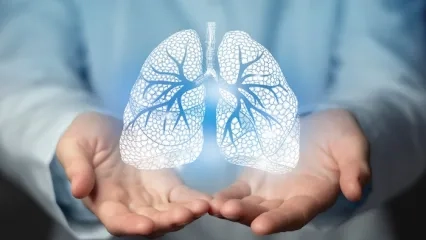Alo Yeditepe
Alo Yeditepe
Does the Pneumonia Vaccine Protect Against the Coronavirus?
There has been a high demand for the pneumococcal, that is, pneumonia vaccine, which has been applied for many years in Turkey. The reason for this is the expectation that the pneumonia vaccine will protect against coronavirus. On the other hand, this vaccine reduces the risk of pneumonia that may develop after the coronavirus, but it does not mean that it will never occur. The real issue arises when people who are not in the risk group want to take precautions against possible pneumonia. Unfortunately, the vaccines produced according to the consumption rate of a year ago do not meet the demand, which has increased 50 times this year. The Ministry of Health has sufficient stocks of vaccines for infants and chronic patients. We asked Yeditepe University Hospitals Chest Diseases Specialist Prof. Dr. Banu Musaffa Salepçi frequently asked questions about the subject.
Does the pneumococcal vaccine protect against coronavirus?
The vaccine is made to protect against pneumococcus, the most common cause of pneumonia. This does not mean that there will be no pneumonia after vaccination, but it reduces the risk. It does not protect against COVID-19 pneumonia because it is directly caused by the virus, but it reduces the risk of pneumonia and pneumococcus that may develop after COVID-19 infection in people with risk factors for pneumonia.
To whom do you particularly recommend this vaccine?
People under the age of 65 and who have no disease do not need this vaccine. It is recommended for people over 65 years of age who are at high risk of having the pneumococcal vaccine, people with chronic diseases such as asthma, COPD, heart failure, diabetes, and other heart diseases, people with rheumatic disease, cancer, or hematological disease that requires the use of immunosuppressive drugs, and people whose spleen has been removed for any reason.
The majority of people born in 2008 and after are fully vaccinated against pneumococcus. It is said that they do not need to be revaccinated...
With the instruction of the Ministry of Health, pneumococcal vaccine is routinely administered at 2, 4, 6, and 12 months in children since November 2008. But after 1 January 2019, the calendar was changed and the 6th month was removed. There is no need for repeat pneumococcal vaccination in children, as in adults, if there is no additional risk factor.
What should children between the ages of 12-18, who have not received this vaccine, do?
Children in this group do not need a pneumococcal vaccine unless there is an additional risk factor. In case of excessive demand for the pneumococcal vaccine, there may not be enough vaccines for children under the age of 2, people over 65 years of age, and people in the risk group, who must absolutely be vaccinated.
Is there a specific time or season to get vaccinated?
There are two types of pneumococcal vaccines. A conjugate vaccine containing 13 strains and a polysaccharide vaccine containing 23 strains. People over the age of 65 and people of any age with risk factors should receive the conjugate vaccine first, and the polysaccharide vaccine 6-12 months after that. The conjugate vaccine is administered once in a lifetime. The polysaccharide vaccine should be repeated every 5 years.
About
Faculty and Year of Graduation:
İstanbul University, Çapa Faculty of Medicine, 1984
”
See Also
- How to Cleanse Your Lungs?
- Is Breathing Air Dangerous in Fires?
- What is Electronic Cigarette Disease (EVALI)? EVALI Symptoms and Treatment
- What is COPD? Symptoms and Treatment of COPD
- Long Journeys Increase the Risk of Embolism!
- What Asthma and COPD Patients Should Pay Attention to When Using Air Conditioning!
- What is Allergy? What are the Symptoms of Allergy?
- What is Desert Dust? Harms of Desert Dust
- What is Tuberculosis (TB)? Symptoms and Treatment
- Circadian Rhythm Disorder
- Lung Cancer Screening Age
- What is Good for Cough? How to Cure Cough?
- Lung Cancer Symptoms and Treatment
- 10 Ways to Have a Sound Sleep in the Heat
- What Should Asthma Patients Be Cautious About?
- Does Poor Quality Sleep Increase The Risk of Asthma?
- What is Allergy? What are Allergy Symptoms?
- What Causes Insomnia, Diagnosis and Treatment
- 9 Common Misconceptions About COPD
- Causes, Symptoms, and Treatment of Asthma
- COPD Makes You Age Early
- Allergy and Asthma During Pregnancy
- It Is Aimed to Eliminate Tuberculosis Worldwide By 2030
- Pollen is Now Seen Outside of Seasonal Changes
- Do Dental Caries Increase the Risk of Pneumonia?
- Lung Patients Should Not Stop Their Medications
- Smoking Rates Under the Age of 15 Are Increasing
- Inhaling Electronic Cigarettes for a Few Minutes Causes Damage to Vein Wall
- 4 Significant Preliminary Symptoms of Lung Cancer
- People Who Smoke More Than 25 Cigarettes a Day Have a 50-fold Increased Risk of Lung Cancer
- How Does Acid Rain Affect Human Health?
- Can Back Pain Be A Sign of Lung Cancer?
- Nine Out of Ten COPD Patients Do Not Know They Are Sick
- The Slowing Traffic in Istanbul Increases the Risk of Cancer!
- The American Cancer Society Has Announced; The Age of Screening For Lung Cancer Has Decreased
- Hidden Lung Cancer Cases Revealed in Tomographs Taken Due to Coronavirus
- Quitting Smoking Even After Diagnosing Lung Cancer Effects Lifespan
- Electronic Cigarettes Can Cause Heart Attacks!
- Pollen Allergy Has No Season
- Beware of Little-Known Risks of Smoking!
- Obesity is Both a Cause and Consequence of Sleep Apnea
- Asthma and COPD Attack Season Begins
- Lung Cancer
- Snoring and Its Treatment
- In Case You Are Unable To Sleep Even If You Are Tired, Your Circadian Rhythm May Be Disrupted
- Using Antipyretics Uncontrolled Can Hide Pneumonia Symptoms
Alo Yeditepe





